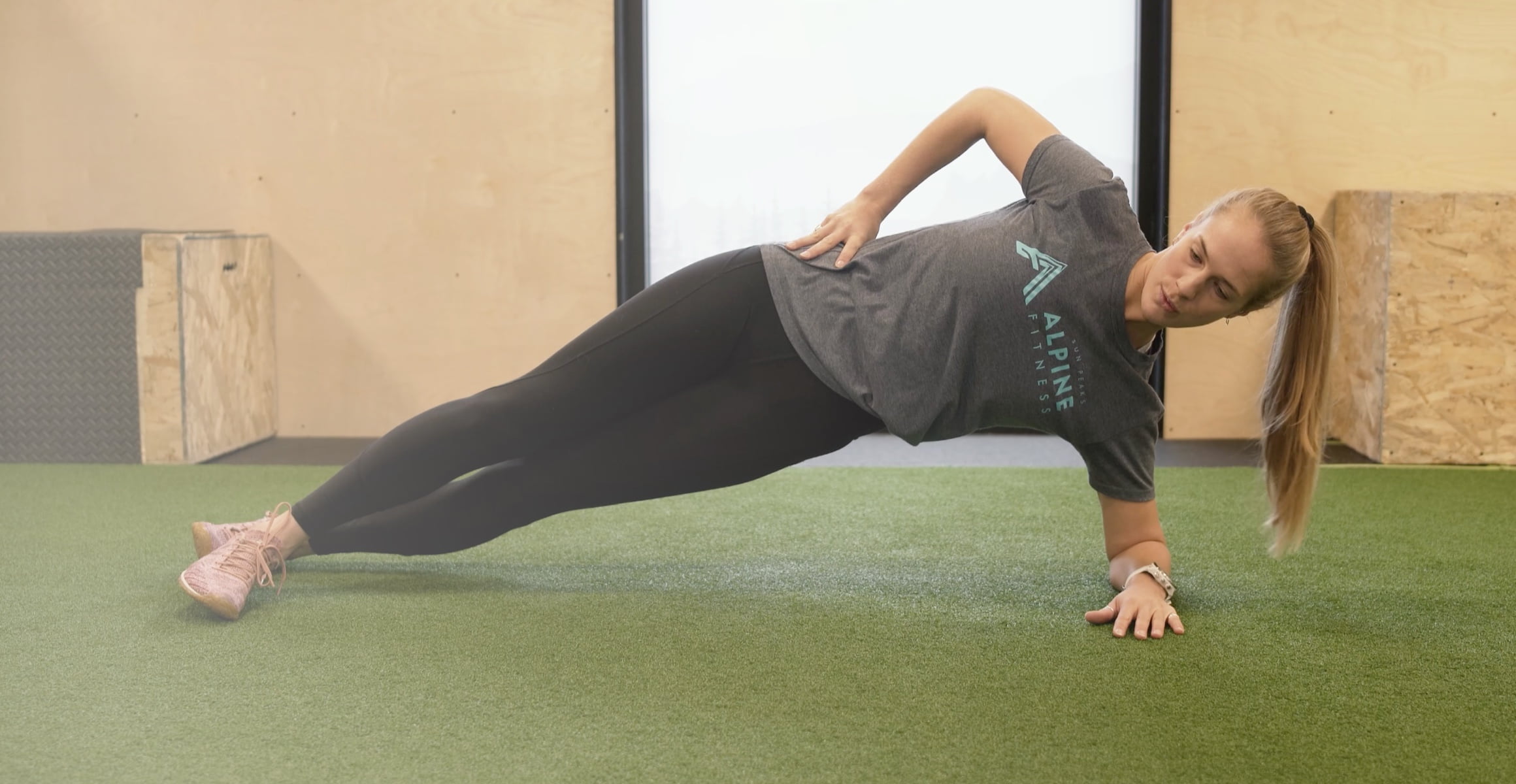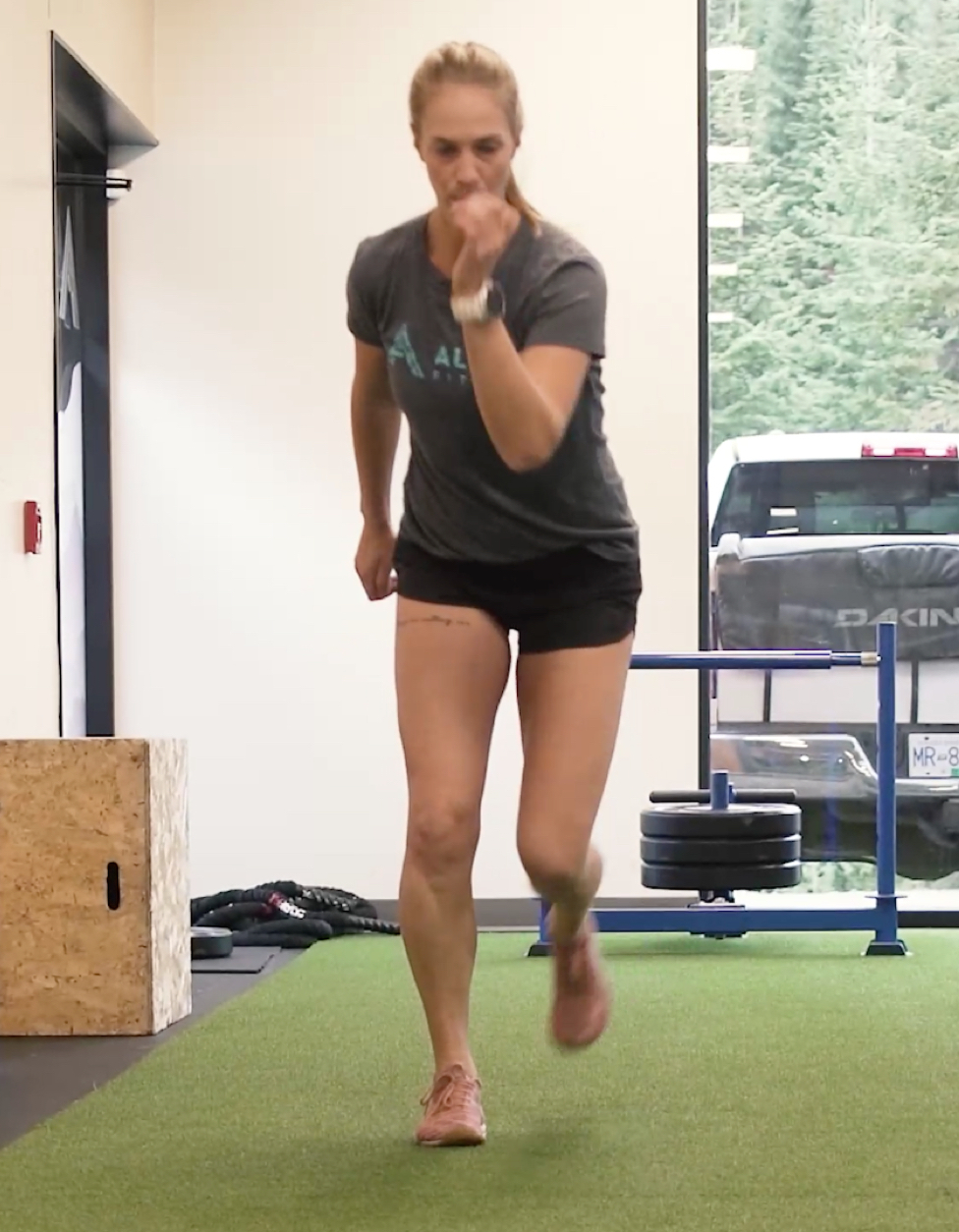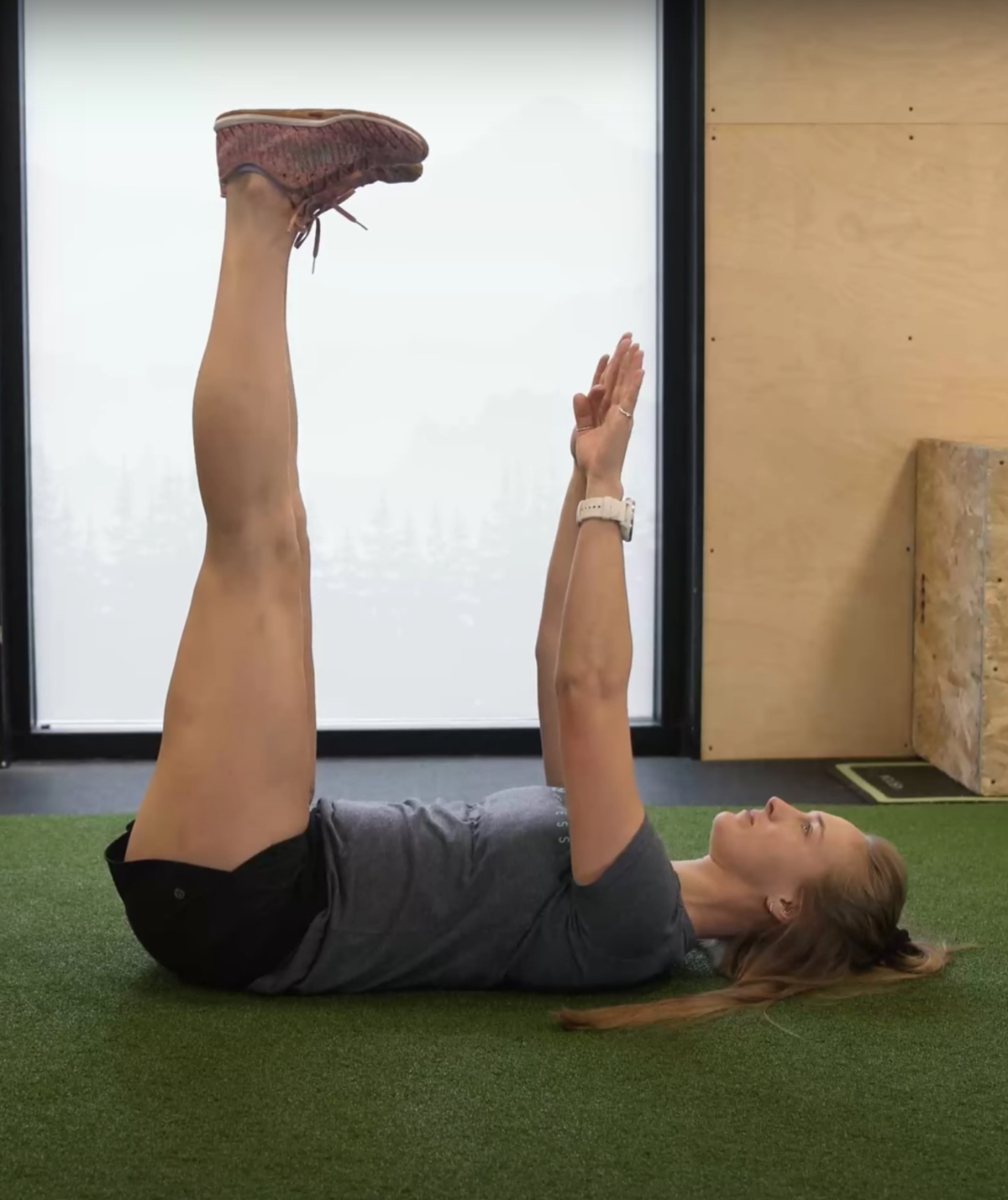Fitness and injury prevention exercises for the ski season!

Knee and low back pain seem to be trigger points for many of us. Bryann Palmer, a Strength and Conditioning Specialist with a degree in Human Kinetics gives us a few exercises to keep us going through the season.

STRENGTHENING OUR KNEES
THINGS YOU KNEE-D TO KNOW – The ACL (Anterior Cruciate Ligament)Ladies! Though the reason is unclear, women see a higher prevalence of Anterior Cruciate Ligament aka ACL injuries of their knees. There is no simple answer to why exactly we are potentially more prone, however, it is known that non-contact movements such as rapid deceleration, lateral movements, and abrupt changing of direction - insert mental video of crashing or falling - are just some of the common mechanisms that result in knee injuries.
Key variables we can address include muscle fatigue and improving strength! Tired quadriceps and hamstrings may be a contributing factor to why we commonly see knee injuries during a day in the mountains. Here are a few simple exercises to add into your pre-season prep and maintenance to assist increased muscle strength, endurance, and stability of your precious knees.
THESE EXERCISES INCREASE HAMSTRING STRENGTH
Key Target Muscles: Glute Maximus, Hamstrings (Semimembranosus, Semitendinosus, Biceps Femoris)
- Start by lying on your back on the floor, knees bent with your heels on a box so your knees are at a 90º angle (if this is too difficult, begin with your feet flat on the floor), hands at your sides.
- Engage your core to press your low back flat against the floor.
- Lift your hips as evenly as possible up to a height creating a flat line with your body, do not overextend your back.
- Slowly and in control, lower your hips back to the floor.
- Repeat for up to 12 reps
Key Target Muscles: Unilateral exercises can reduce or correct bilateral imbalances
- Start by lying on your back on the floor, knees bent with your heels on a box so your knees are at a 90º angle (if this is too difficult, begin with your feet flat on the floor), hands at your sides.
- Lift ONE foot off the box (or floor) and extend your other leg.
- Lift your hips as evenly as possible up to a height creating a flat line with your body, do not overextend your back.
- Slowly and in control, lower your hips back to the floor.
- Do up to 12 reps on one side, then repeat on the other side.
THESE EXERCISES INCREASE KNEE STABILITY
Key Target Muscles: Gluteus Maximus, Quadriceps (Vastus Lateralis, Intermedius, Medius, Rectus Femoris) Hamstrings (Semimembranous, Semitendinosus, Biceps Femoris)
- Using an exercise band helps improve knee stability mechanisms and challenges balance.
- The band can be used inside or outside of the knee based on your preference and comfort.
- Weight should transfer down through the mid-foot and heel of the lead leg
- Load your lift as vertical as possible. Keep the shin upright, avoid driving it forward.
- Hips move up and down vertically
- Repeat for up to 12 reps
THESE EXERCISES INCREASE KNEE STABILITY

STRENGTHENING OUR LOWER BACK
SHAKE THE ACHE - Low back PainSpinal Hygiene! The spine is not a freestanding structure, it needs the musculature around to help support and guide it through movements of rotation, flexion, extension, and protection. Treat it like gold and it will treat you well. Although stretching was the common beneficial act for releasing back pain, lets gain strength and control as well.
Skiing often puts the body in a bent-over position increasing the sheer forces on the spine, particularly the lower lumbar and sacral areas.Stabilizing the spine and training it like a pillar can help reduce that lower ache by improving deep core strength. Here are a few exercises to stabilize and control your spine creating good spine hygiene to create pain free movement while skiing!
Key Muscle Targets: Transverse Abdominis, Pelvic Floor, Erector Spinae
A common mistake is moving too fast. Slow down and pause at the top for maximum benefit.
- Lying flat on the floor, reach your arms and legs straight up.
- Slowly lower the opposite leg and arm down towards the floor and then bring back up.
- KEY: do not let your lower back lift or arch off the floor. If it does, decrease the movement of your legs.
- Modification: bend your knees to 90 degrees and extend the legs from this position
- Repeat up to 20 reps
Key Muscle Targets: Obliques, Transverse Abdominis, Quadratus Lumborum, and accessory muscles
- Lay on your side, up on one elbow and knees bent to 90 degrees
- Keeping the elbow under your shoulder, elevate hips upwards and forward
- Maintain a straight line from knees, hip, shoulder, and head in a natural position
- Relax your jaw and neck
- Hold your torso up for 10-30 seconds then lower
- Repeat on the other side
Key Muscle Targets: Obliques, Transverse Abdominis, Quadratus Lumborum, and accessory muscles
- Lay on your side, up on one elbow, legs straight with the top foot layered forward, heel to toe with lower leg anchored to the ground
- Keeping the elbow under your shoulder, elevate hips
- Maintain a straight line from ankles, knees, hip, shoulder, and head in natural position
- Relax your jaw and neck
- Hold your torso up for 10-30 seconds then lower
- Repeat on the other side

Kamloops Initial Attack, Kamloops, BC
BC Wildfire Service | Ministry of Forests, Lands, Natural Resource Operations and Rural Development
Bryann is from Sun Peaks, British Columbia, Canada. She grew up both in the backcountry and on the race course, which all fostered her love for skiing. She has lived in almost all areas of BC and now spends the majority of her time chasing lines on snowmobiles and ski touring across BC. She completed her Bachelor of Science in Human Kinetics at UBCO and further specialized as a Strength and Conditioning Specialist working primarily with injury rehabilitation and sports performance.
And if that’s not enough, she also works for the BC Wildfire Service as a Fire Fighter. Her summers are packed with responding to fires all over BC and the rest of Canada, as well as the United States.